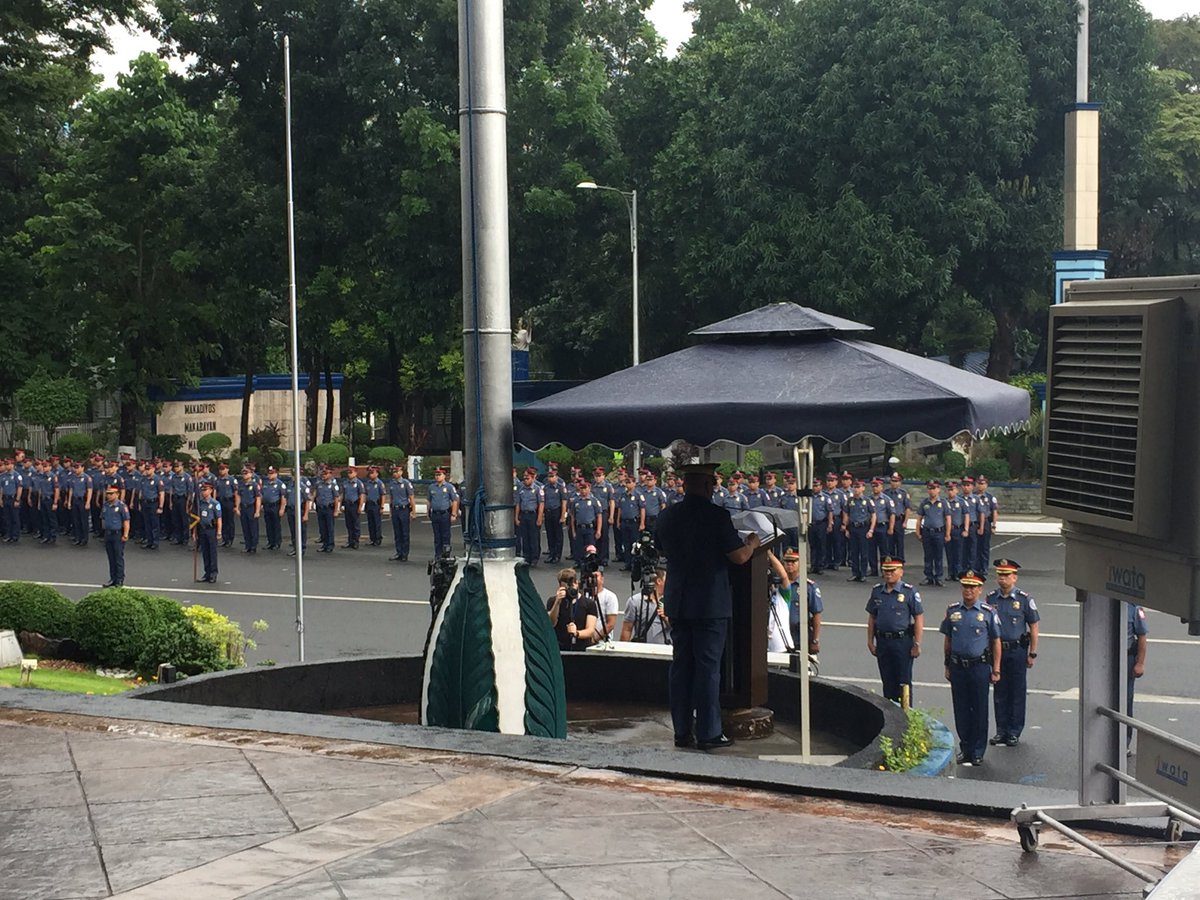SUMMARY
This is AI generated summarization, which may have errors. For context, always refer to the full article.

MANILA, Philippines (UPDATED) – President Rodrigo Duterte’s plans to revive the Philippine Constabulary (PC) may have been a surprise to some sectors but the idea of reviving a militarized police force did not come as a surprise to the country’s top cop, Director General Ronald dela Rosa.
Dela Rosa, chief of the Philippine National Police (PNP), said on Monday, September 26, that he was in favor of reviving the long-gone PC, which used to be a major service command under the Armed Forces of the Philippines, alongside the Air Force, the Army, and the Navy.
The 4-star police general explained that when he was still serving in Davao City and Duterte was then mayor, they talked about the possibility of bringing back the PC.
Their discussions then, Dela Rosa said in a chance interview on Monday, concerned the internal structure of the country’s police forces and its dynamics with local chief executives.
“The local police, they’re controlled by the local chief executives. Now the federal police, the PC, they can countercheck any anomalies on the local level. It will have checks and balances because the PC, the federal police are directly under the president. So it’s not controlled by politicians,” said Dela Rosa.
In the context of the Duterte administration’s ongoing “war on drugs,” Dela Rosa added: “That’s why we have politicians who are also drug lords because they control the local police. But if we have federal police, they will not be under the control of narco-politicians.” (READ: The Duterte list: Judges, mayors, police officials linked to drugs)
Duterte offered a different reason, however, when he spoke about his plans during a September 20 speech in Compostela Valley. “I will return the Philippine Constabulary under the 4 commands – Army and the Philippine Constabulary because I need people in urban terrorism like the SAF (Special Action Force),” he said.
The PC began as a police force under the American colonial government in 1901, and was eventually placed under the military. As a militarized police force, the PC handled peace and order concerns as other major commands fought insurgencies and rebel movements.
It was the PC that implemented martial law in 1971 by arresting activists, taking over key private establishments, traffic control, and even garbage collection. In 1991, several years after dictator Ferdinand Marcos was ousted through the EDSA Revolution, the PC and Integrated National Police – the police force for cities and large towns – were dissolved, leading to the creation of the civilian PNP.
Several senior officials of the PNP, including Dela Rosa, are graduates of the Philippine Military Academy (PMA), a reminder of the force’s military past.
Reforms to the police force’s internal structure – including a possible return of the PC – was “part” of their discussions, said Dela Rosa.
Currently, the PNP is a civilian force and is an attached agency of the Department of the Interior and Local Government. The Interior Secretary has administrative oversight of the PNP as chairman of the National Police Commission (Napolcom).
The PNP’s civilian nature is enshrined in the 1987 Constitution. Article 16, Section 6 reads: “The State shall establish and maintain one police force, which shall be national in scope and civilian in character, to be administered and controlled by a national police commission. The authority of local executives over the police units in their jurisdiction shall be provided by law.”
It is not clear how Duterte intends to revive the PC.
The PNP is composed of directorates, national support units, and regional commands that all report to Dela Rosa. However, under the Local Government Code, local chief executives can pick their provincial, city, or town police chiefs because they are deputized by the Napolcom. Provincial police chiefs, for instance, report to both the regional police director and the provincial governor.
Duterte and Dela Rosa are the top government officials leading the administration’s war on drugs. A campaign to eliminate crime, illegal drugs, and corruption was among Duterte’s key promises during the 2016 elections. – Rappler.com
Add a comment
How does this make you feel?
There are no comments yet. Add your comment to start the conversation.